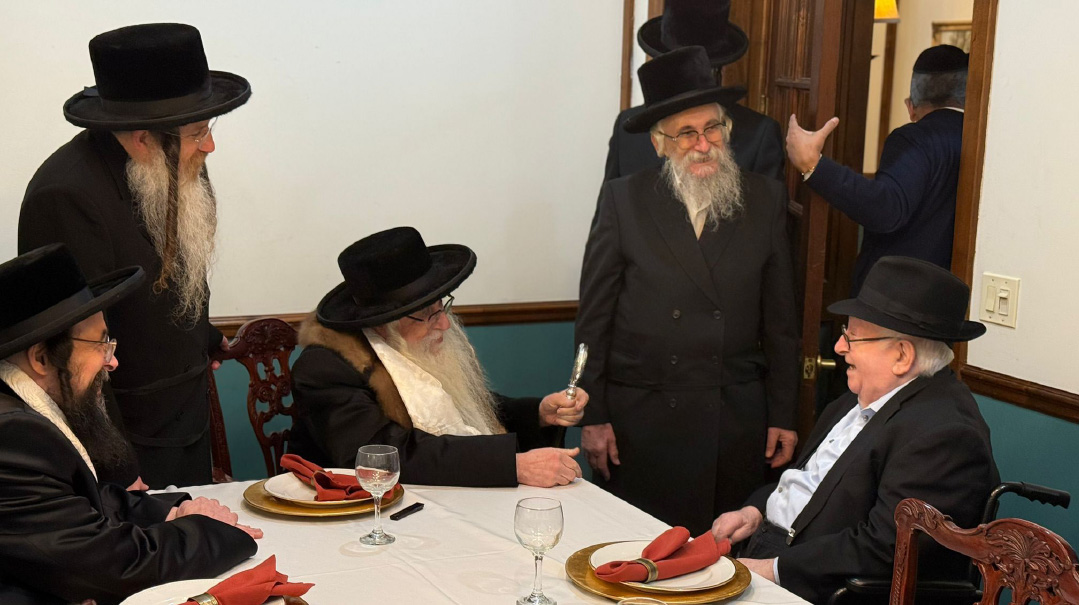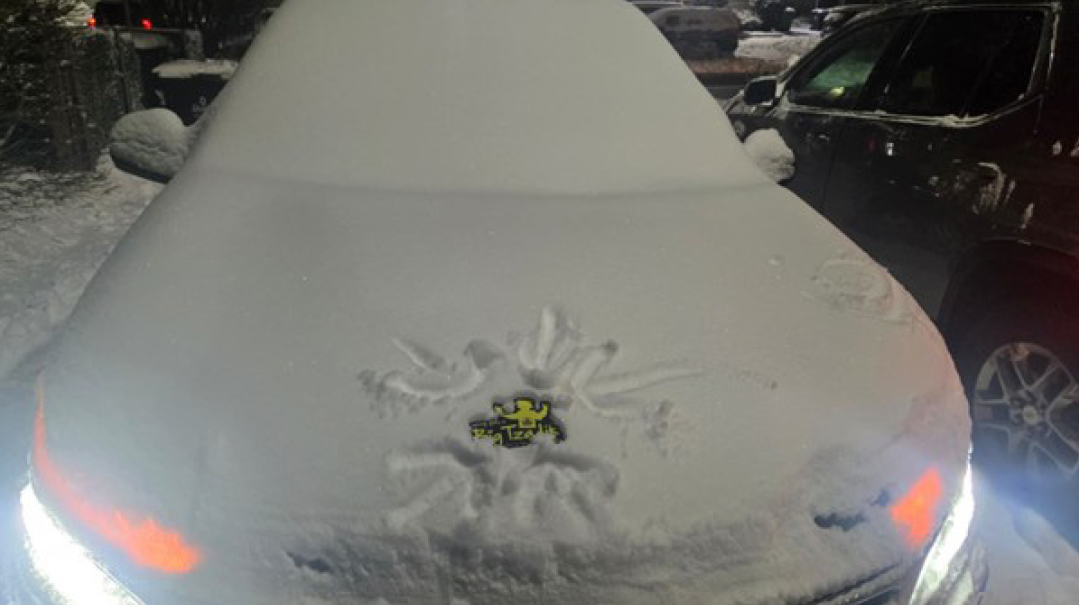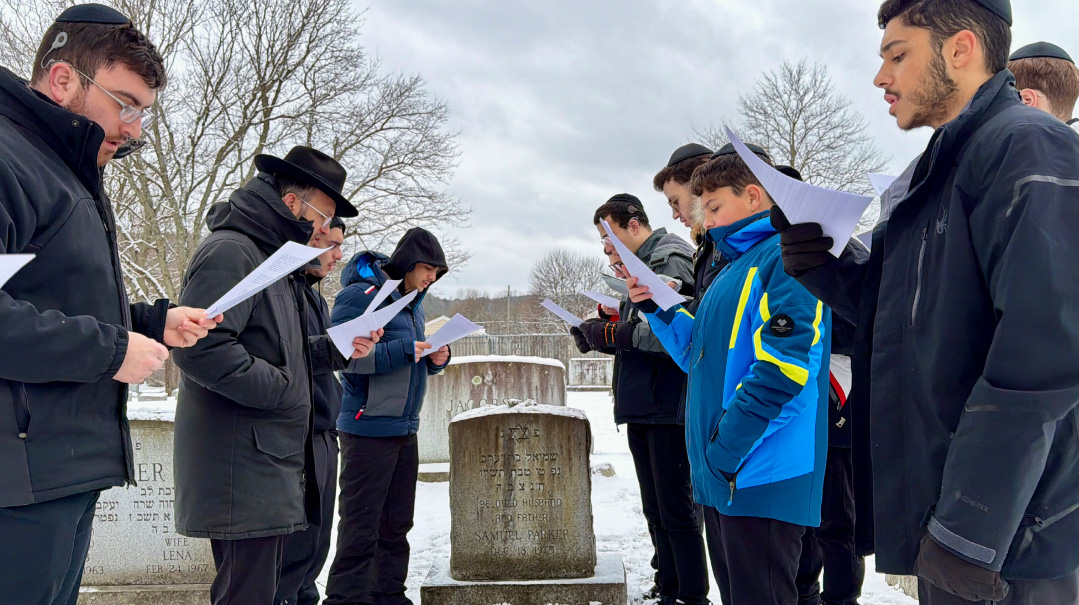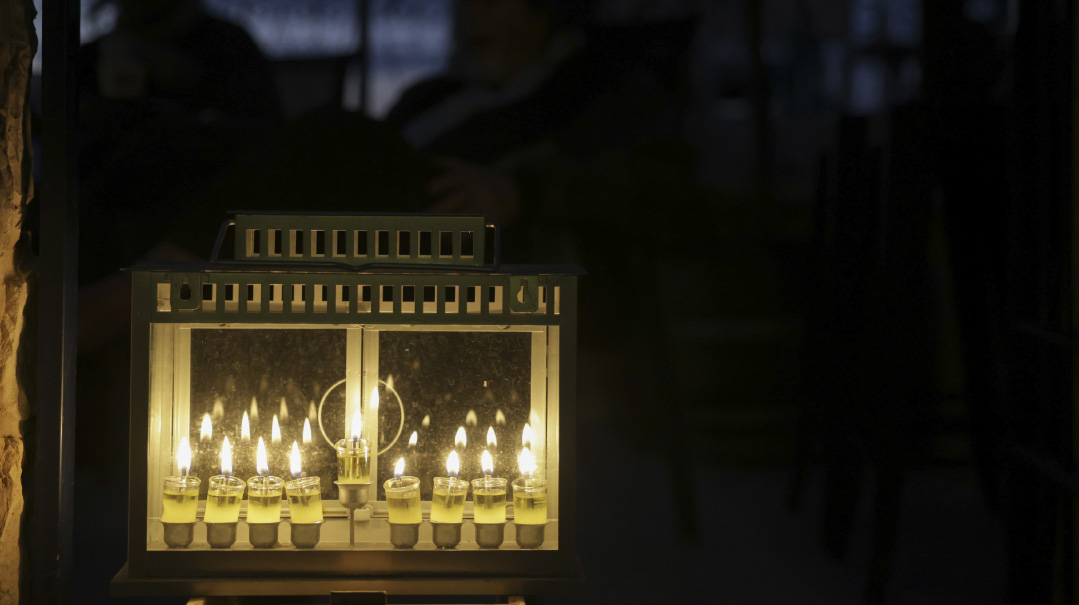The Moment: Issue 1040
| December 10, 2024“How are we supposed to go to sleep tonight?”
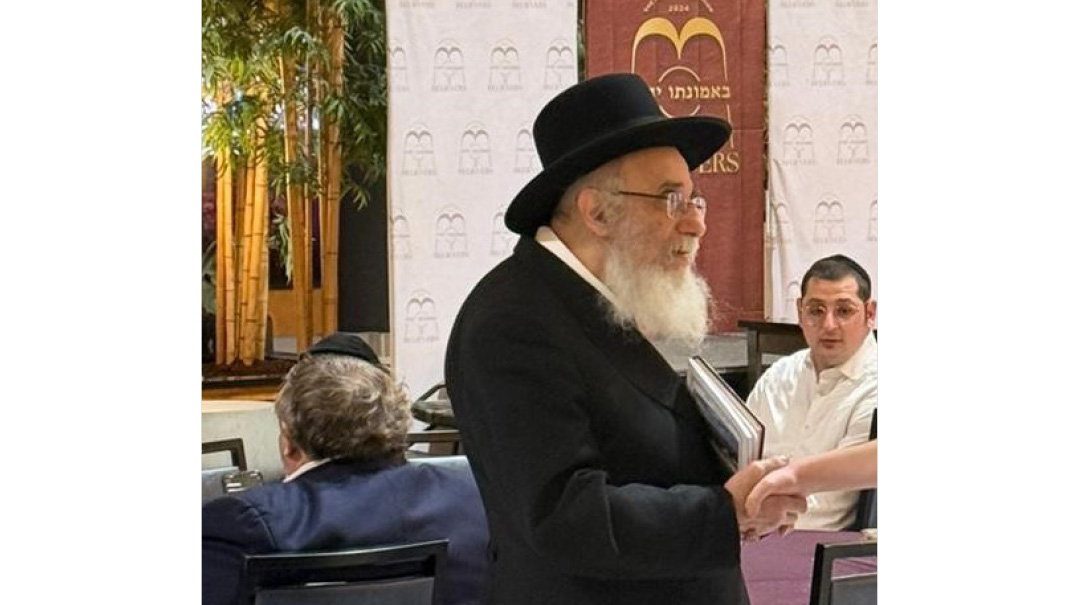
BY 2 a.m. on Motzaei Shabbos, the crowds that had been filling Connecticut’s Armon Hotel for the Agudah Convention had largely dissipated. The sessions had long ended, Melaveh Malkah had been cleared away, and the last strains of the post–Melaveh Malkah kumzitz, a cherished convention minhag, had faded. Most of the guests had retired to the upper floors for the evening.
Yet there were a few participants who lingered downstairs, among them Rav Shloime Mandel shlita, the rosh yeshivah of Yeshiva of Brooklyn. A line formed in front of Rav Mandel, with young women still seeking their basherts and individuals just looking to unburden, patiently waiting their turn to speak to the Rosh Yeshivah.
Despite the hour, the Rosh Yeshivah stood and greeted one person after the next, listening, empathizing, and offering encouragement, guidance, and brachos.
In a telling moment showing just how deeply he felt their pain and hardship, at one point, Rav Mandel turned to an onlooker and asked, “How are we supposed to go to sleep tonight?”
It was just a casual remark, but it reflected the deep empathy of a gadol who was nosei b'ol to the fullest extent.
Memorable Moments from the Agudah Convention
The theme of the 2024 Agudah Convention held over the weekend of parshas Vayishlach was “We are here because we are believers.” The convention brought together thousands of rabbanim, leaders, and Yidden who came to declare their unshakable emunah. Here is a sampling of quotes.
“Everything that happens on this world is a microcosm of what is happening in the Olam Ha’emes…. If the Berditchever were here today, he’d react to the news of the president pardoning his son by saying that this shows that the power of a king is such that he has the ability to issue an unconditional pardon, no matter the severity of the crime. Hashem, too, has the ability to grant any of us an unconditional pardon, no matter how grave the aveirah. That is the koach that a melech has.”
—Rav Elya Brudny shlita, addressing an impromptu question-and-answer session during Kiddush on Shabbos
“I highly doubt that making a press conference every time someone sprays a swastika in the bathroom is the correct approach to anti-Semitism and an effective way to combat it. Other than the normal shtadlanus efforts that the organizations engage in, the response of us as individuals in our own daled amos has to be to strengthen ourselves in our emunah and understanding that it’s a halachah that Hashem placed into the world.”
—Rav Yisroel Reisman shlita, responding to a question posed in the Asking for a Friend session on how to combat anti-Semitism
“One has to be very careful not to say that back then [in the 1930s], the gedolim then somehow missed it, so perhaps, chas v’shalom, the same thing is happening now. One of the few things we have left in Klal Yisrael is emunas chachamim — the fact that we have einei ha’eidah — and it’s up to us to adhere to the gedolei hador.”
—Rav Uri Deutsch shlita, responding to a question about mass aliyah without the endorsement of our gedolim
“Bitachon means that a person throws himself totally onto the Ribbono shel Olam, and that brings the Ribbono shel Olam into this world. Whether it’s the situation in Eretz Yisrael or what’s happening here in America financially, the way for us to overcome challenges al pi derech hateva is the strengthening in emunah and the realization that He is with us.”
—Rav Aryeh Malkiel Kotler in his address at the Thursday night keynote session
“Turbulent times force us to have thoughts. There is confusion, and we need clarity. The situation brings to mind an exchange in which a chassid once asked his rebbe, ‘When Mashiach comes, how will we recognize him?’
“To which the rebbe responded, ‘This is not your worry. You have to ask: How will Mashiach recognize me?’ ”
—Rav Lipa Geldwerth in his address at the Thursday night keynote session
“The Gemara brings down that that the responding of Amen is even greater than the recitation of a brachah. Perhaps the reasoning is that the one making the brachah ‘sees’ Hashem in front of him. He is declaring, ‘Blessed are You, Hashem!’ The one who responds Amen doesn’t see Hashem in front of him, yet he is still declaring that he has emunah and believes it to be true. That is why gadol ha’oneh Amen.
“When our gedolim tell us that the soldiers are doing great things, and those sitting in front of a blatt Gemara are doing the great avodah of allowing us to say ‘Omdos hayu ragleinu b’she’arayich, Yerushalayim,’ do we see it? Do the cynics see it? Not necessarily. But it’s true. We believe it. Amen.”
—Rabbi Chaim Dovid Zwiebel, executive vice president of the Agudah addressing the convention’s keynote session
“We need to be able to be mature enough and disciplined enough to reject. A new app came out and everyone is using it? Stand up and say no, I’m not. The discipline that we as humans have to be able to say no — to reject this — is what restraint is about.
“Yes, as time passes, there will be different challenges that are progressively harder, but that doesn’t mean you look back and say there is worse coming, so let’s not fight this battle. No. Fight today! Don’t just be a copycat — we’re not spiritual sheep to slaughter. So even if we’re going to lose the battle — it’s okay and it’s still the right thing to fight each challenge.”
—Rav Moshe Rotberg, addressing a session on battling social media and WhatsApp
(Originally featured in Mishpacha, Issue 1040)
Oops! We could not locate your form.

